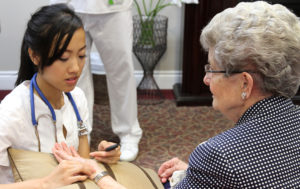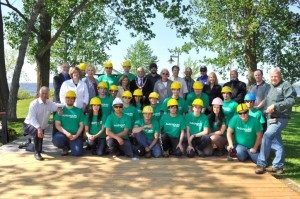It happened quickly, but students at Algonquin College’s Pembroke Waterfront Campus are now completing their winter term online. The COVID-19 pandemic has created an unprecedented situation for the entire world, and as countries responded by enforcing physical distancing, it prompted post-secondary institutions to move curriculum that would normally be taught in classrooms, labs and in the workplace to an online format.

Starting on Monday, March 23, students who were accustomed to attending classes on campus were now engaging from their homes. The College knew this would be a big adjustment for both teachers and students, and so a variety of supports were put in place to support both parties. Faculty who had extensive experience teaching online rallied to support their colleagues and the College’s information technology and academic support teams put together a “super team” of trainers who introduced new online learning tools and best practices to ensure teachers were in the best position to deliver their classes virtually.
Across the College, teams of employees brainstormed and then put into action fresh ideas to build a toolbox of resources to support students. A great example is a learning kit portal that shares resources on how to succeed in online classes. There are videos on topics such as time management, studying and test-taking and delivering presentations. Another section puts students in contact with the College’s student support lab where they can set up virtual meetings with academic coaches who can help them better understand subject material in areas such as English, Math and Science.
The College uses Zoom technology to allow its faculty to deliver lectures and presentations to student remotely. The learning kit portal provides step-by-step directions to students on how to navigate their way through Zoom so they are comfortable using it. There’s also a Student Services User Guide that puts students in contact with the right college staff member who can help them, whether that is an academic advisor, a counsellor or a financial aid officer.
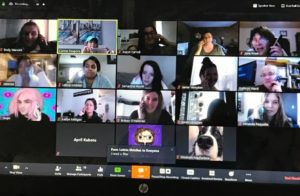
It hasn’t been an easy transition moving from a face-to-face educational model to an online campus in such a short period of time, but given the circumstances, there was no choice and there was limited time to make the transition. It’s been a learning experience for everyone, but our students and faculty deserve a lot of credit for their patience and willingness to adjust during a very difficult time.
For example, the College understands that with elementary and secondary schools closed, many college students have children at home as do some teachers. This sometimes leads to unexpected interruptions from younger family members or even pets. There’s an appreciation that life is happening in real-time for everyone and that the uncertainty of the pandemic is concerning for all. For that reason, the College is working very hard to be flexible and supportive of students as they navigate their way through what is a completely new learning environment for some of them.
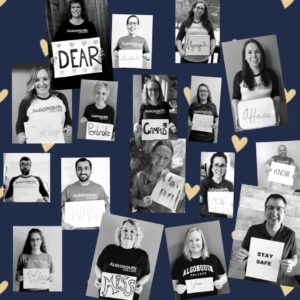
It will be some time before the Waterfront Campus re-opens to students for in-person classes, but out of this crisis will come many new opportunities for the College to better serve its learners. Developing a learner-driven plan that customizes the experience of students has been a priority for the College, and moving to an online platform of instruction, will certainly help generate new ideas of what the future student learning experience could look like. It’s an exciting concept, but a dialogue that will have to wait a bit longer as the College prioritizes its commitment to help students complete their academic term.
In the meantime, Algonquin College will continue to aspire to its mission to transform hopes and dreams into lifelong success. The College is just doing it in a different way, while also looking forward to a return to regular college operations when it is safe to do so. Be safe and be well.
Jamie Bramburger is the Manager of Community and Student Affairs at Algonquin College’s Pembroke Waterfront Campus. You can reach Jamie at brambuj@algonquincollege.com



 We prepare you for your future career – learn the skills to get the job: Research reveals 86% of college graduates secure employment within six months. College education continues to be an effective and swift route to employment. The provincial
We prepare you for your future career – learn the skills to get the job: Research reveals 86% of college graduates secure employment within six months. College education continues to be an effective and swift route to employment. The provincial  We offer one-of-a-kind programs – you won’t find anywhere else: We offer a number of truly one-of-a-kind programs, with a strong reputation across Canada and internationally. Our beautiful campus is surrounded by scenic countryside, forests, lakes, and rivers–the perfect location for some of the most exhilarating outdoor training programs on earth. Whether you are interested in building the action sports culture, learning how to preserve the present for the future, or looking to become an outdoor guide, we have the programs and certifications that will guide you toward your dream career!
We offer one-of-a-kind programs – you won’t find anywhere else: We offer a number of truly one-of-a-kind programs, with a strong reputation across Canada and internationally. Our beautiful campus is surrounded by scenic countryside, forests, lakes, and rivers–the perfect location for some of the most exhilarating outdoor training programs on earth. Whether you are interested in building the action sports culture, learning how to preserve the present for the future, or looking to become an outdoor guide, we have the programs and certifications that will guide you toward your dream career! 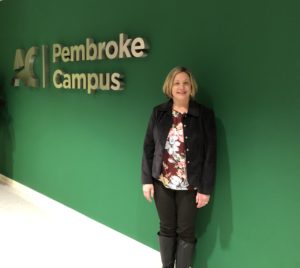

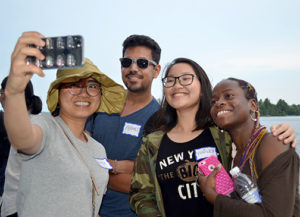

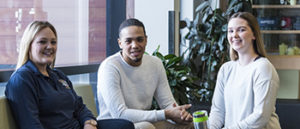


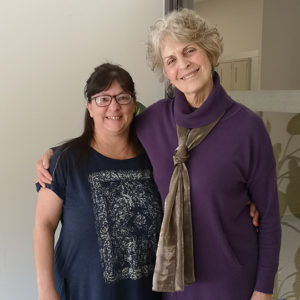
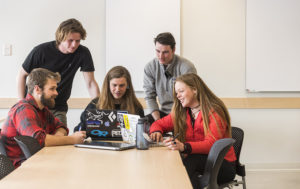 Some students have plans to study in a specific vocational program, but because the program doesn’t start until the fall they enroll in the
Some students have plans to study in a specific vocational program, but because the program doesn’t start until the fall they enroll in the 